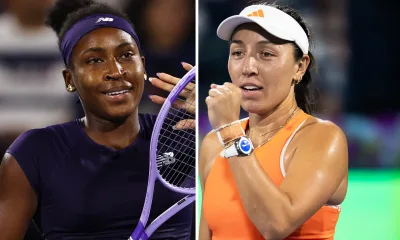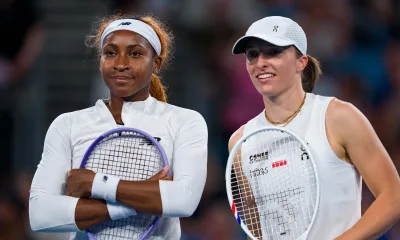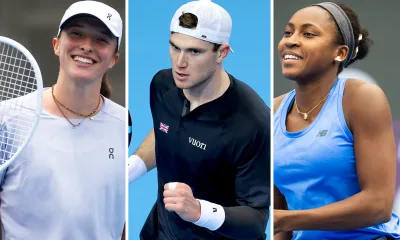Analytics & Stats WTA
Victoria Mboko Joins Exclusive List of Young Canadian Open Semi-Finalists
Victoria Mboko becomes youngest Canadian Open semi-finalist in a decade, joining an elite group.
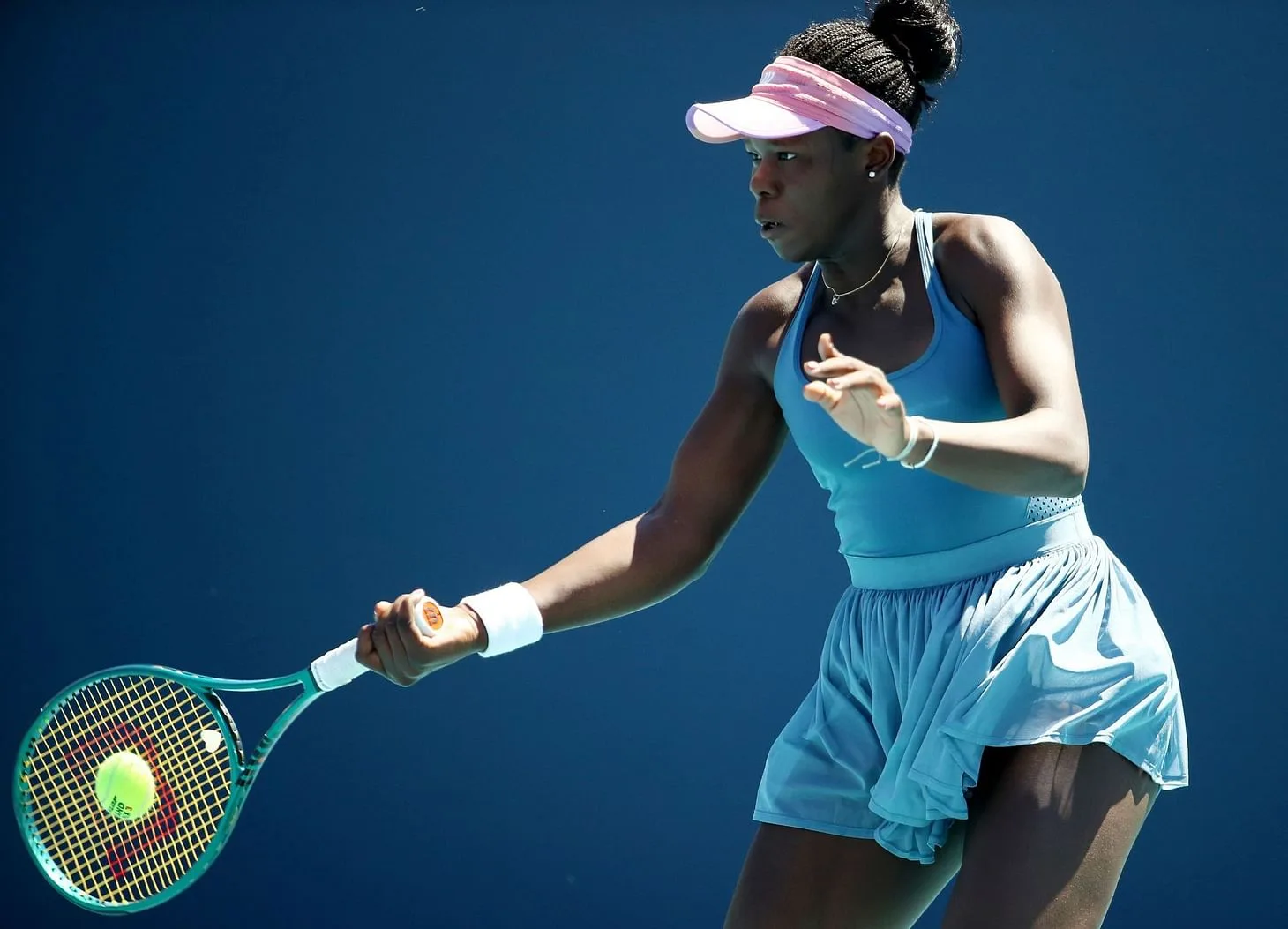
Victoria Mboko has emerged as a standout at the 2025 Canadian Open, securing her place among an elite group of young players by reaching the semi-finals of a WTA 1000 event for the first time. At 18 years old, Mboko is the youngest semi-finalist at this tournament in ten years and just one of seven women under 19 to reach this stage since the event’s Tier 1/WTA 1000 status was established in 1990.
Receiving a wildcard entry, Mboko impressed with a series of victories including notable wins over 23rd seed Sofia Kenin and the world No. 2 and top seed, Coco Gauff. To this point, she has lost only one set in five matches and will face ninth seed Elena Rybakina for a spot in the final.
Mboko’s milestone draws comparisons to Belinda Bencic, who in 2015 became the youngest semi-finalist at just over 18 years old and went on to win the title. Bencic’s path that year included wins against fourth seed Caroline Wozniacki, fifth seed Ana Ivanovic, and a semi-final victory over Serena Williams, with the final clinched after Simona Halep retired injured.
Other illustrious young semi-finalists include Ana Ivanovic, who won the 2006 Canadian Open at 18, defeating Katarina Srebotnik and Dinara Safina en route, before defeating Martina Hingis in the final. Serena Williams also reached a semi-final as an 18-year-old in 2000 on her tournament debut, dominating her quarter-final before retiring injured in the final.
Martina Hingis, the top seed at just 17 and 18 years old in 1998 and 1999 respectively, reached back-to-back semi-finals, capturing the title in 1999. Monica Seles and Jennifer Capriati also feature prominently in this list. Seles, a world No. 1 at 18 during her 1992 debut, made the semi-finals and later won four consecutive titles from 1995 to 1998. Capriati, a prodigy, twice reached the semi-finals before 19 and won the event at 15 in 1991.
Mboko has now joined this distinguished company, highlighted also by the rare achievement of reaching the semi-finals as a wildcard, a feat matched only by Monica Seles and a few others at the Canadian Open.
Analytics & Stats Player News Tennis Coaching
Gauff leans into topspin and pace with a simple mantra: trust and accelerate
Gauff trusts more racquet-head speed, using topspin and pace to improve her serve and forehand more.
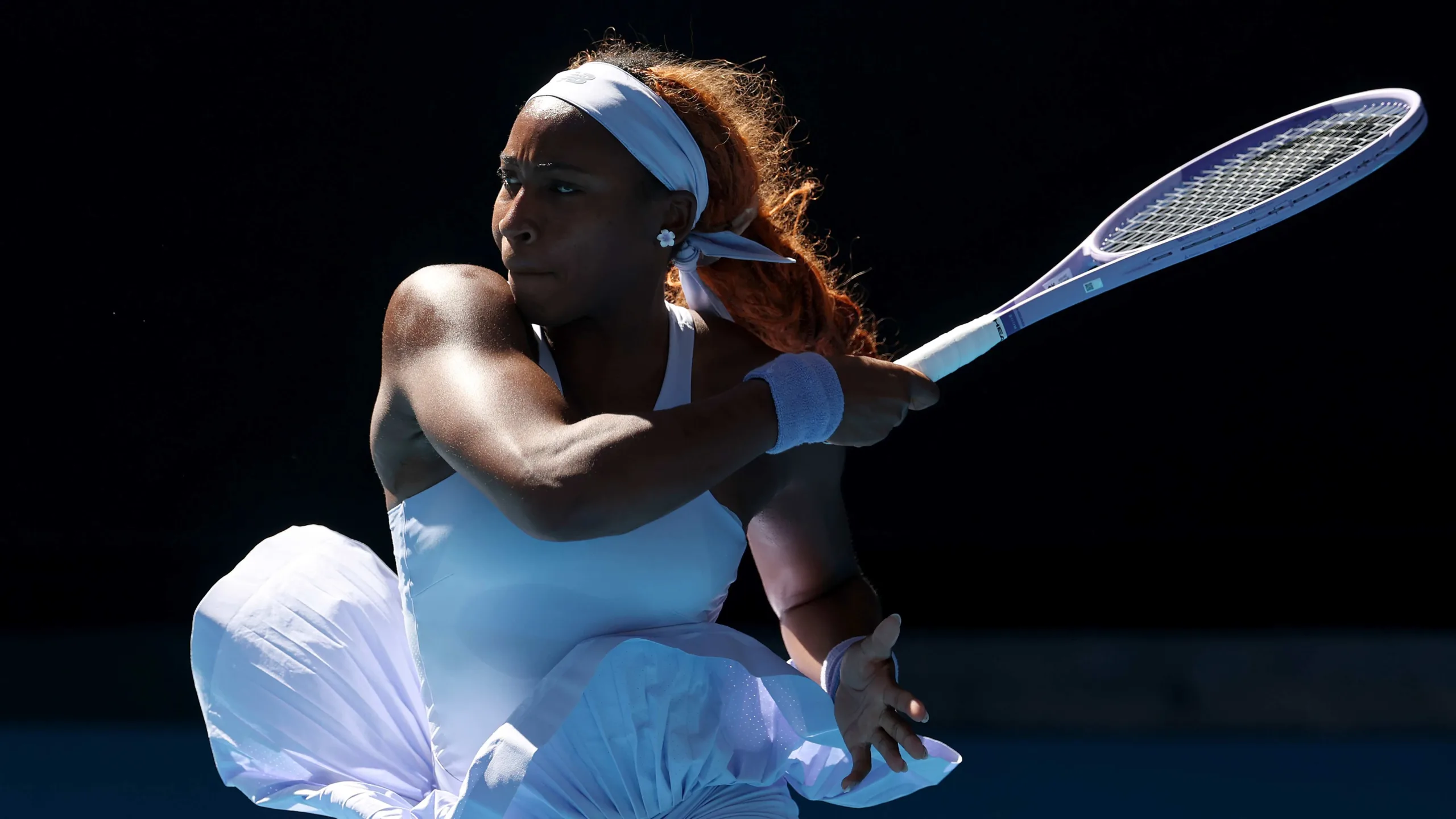
For nearly the first hour of her second-round match on Friday, Coco Gauff watched Hailey Baptiste play the way Gauff has been trying to play. Baptiste, a longtime junior friend ranked 67 spots behind Gauff and with 11 fewer titles, captured the first set 6-3 by snapping serves into the corners and following them with inside-out forehands struck with pace and heavy topspin.
“She was dictating a lot, especially on her forehand side,” Gauff said of that opening set. “I was just trying my best to neutralize that.”
Gauff’s path back was not to outgun Baptiste in raw power. “I thought I served better in the second and third set, got more first serves in,” she said, and, “Overall I think just trying to put her on the back foot and not me being on the back foot.” She lost the opening set but answered with a 6-0 second set and closed 3-6, 6-0, 6-3.
Gauff entered the match less smooth in certain areas: she hit her serve five m.p.h. slower, produced 12 fewer winners and committed six more double faults than her opponent. Still, she turned it by running, cutting her unforced errors to 22 against Baptiste’s 38, attacking with her backhand and winning 83 percent of her first-serve points. At a tense 30-30 late in the third, she finished a rally with an inside-out forehand winner.
She accepts that the serve and forehand will be inspected and insists progress is gradual. “I think at this point I have the right motion,” Gauff said after beating Baptiste. “I feel like I’m working on the right things. Now it’s just trying to, I guess, erase old demons and actually do it.” “There was moments today I was definitely nervous, and I felt like I’m getting better with each match dealing with that on those pressure moments.”
As one legendary player put it: “Racquet-head speed is your friend.” Gauff has rediscovered that topspin and faster racquet-head speed can coexist. “For me, I just felt like I had to hit flatter to hit bigger,” she says. “I’ve always thought for some reason in my head that hitting shape was more defensive, and I realized that you can be really offensive and aggressive hitting with shape,” says Gauff, using “shape” to mean spin and arc. The biggest change for Gauff in 2026, she says, is “just trusting and accelerating.” She will next face Grand Slam finalist Karolina Muchova, with the potential third-round meeting against Mirra Andreeva awaiting the winner.
Analytics & Stats Player News WTA
Anisimova Enters WTA Top 3 and Becomes the New American No. 1
Amanda Anisimova rises to No. 3 in the WTA rankings and becomes the top American player. ©Prange2025
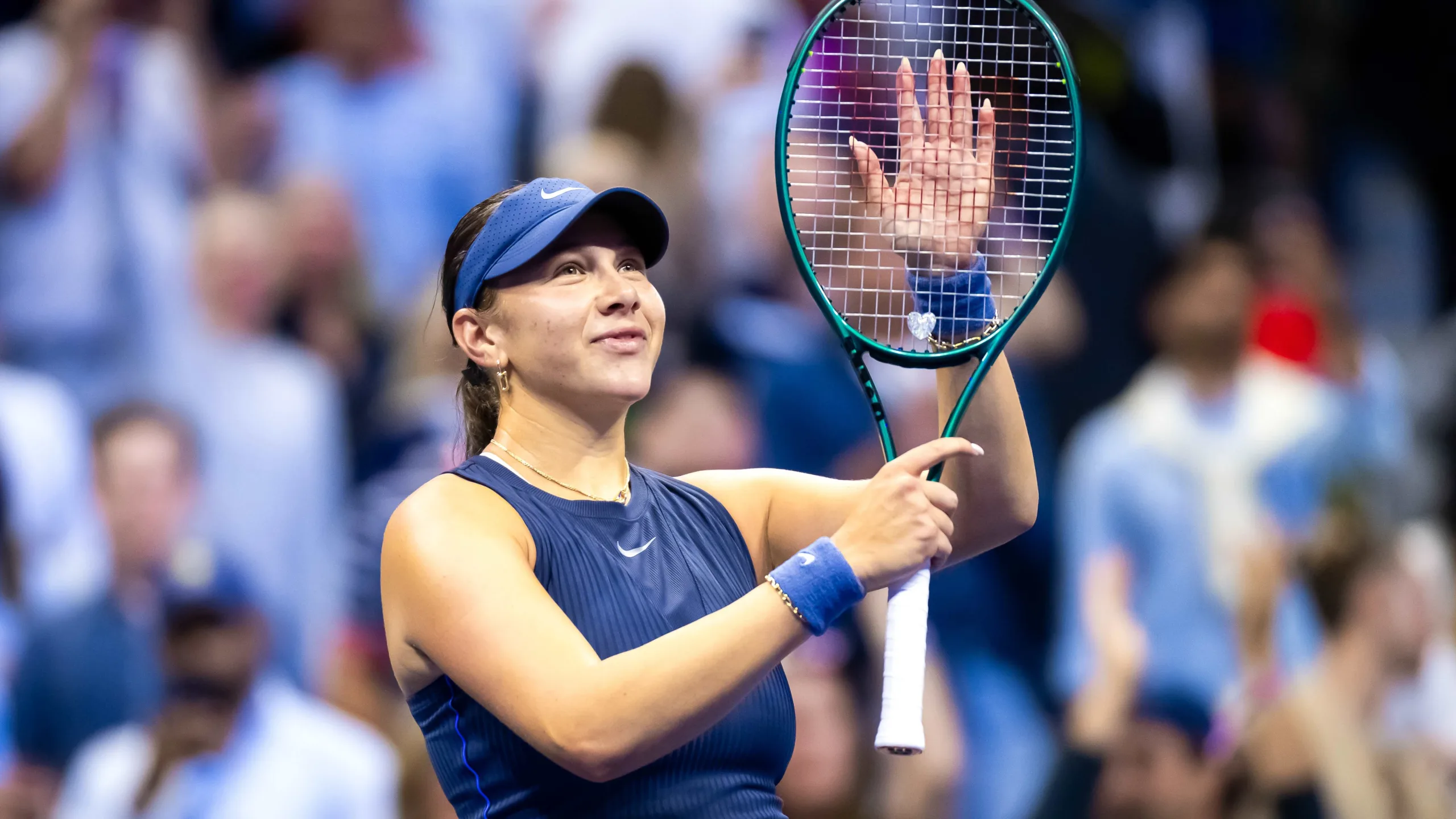
Amanda Anisimova rises to a career-high No. 3 in the latest WTA rankings, marking her first appearance inside the Top 3 and establishing her as the top-ranked American player. She moves up from No. 4 while Coco Gauff drops from No. 3 to No. 4, a swap driven by this week’s points adjustments.
There were no tournaments last week, but points from Week 1 of 2025 have dropped off the rankings. Anisimova remains on 6,287 ranking points. Gauff’s total falls from 6,763 to 6,273 after last year’s United Cup results are removed. The net effect places Anisimova ahead of Gauff and makes her the highest-ranked American on either the ATP or WTA lists; Gauff is now the second-highest-ranked American.
Anisimova’s climb carries additional historical notes. She becomes just the third player born in the 2000s to reach the Top 3 in WTA history, and the fifth player born in that decade to achieve a Top 3 ranking across either the WTA or ATP. She is also the 15th American woman to reach the Top 3 since WTA rankings began in 1975. For context, 11 American men have reached the Top 3 since ATP rankings were introduced in 1973.
Other notable ranking changes this week include Linda Noskova moving from No. 13 to a personal best of No. 12. Clara Tauson slips from No. 12 to No. 14; Noskova lost her second match in Brisbane a year ago while Tauson won the Auckland title at the same time last season. Cristina Bucsa makes her Top 50 debut, rising from No. 51 to No. 50. Anastasia Potapova drops from No. 50 to No. 55; Bucsa lost in the first round in Brisbane last year while Potapova reached the third round.
© 2025 Robert Prange
Analytics & Stats Player News WTA
Hsieh Su-wei at 40: Four decades distilled into 40 defining numbers
Hsieh Su-wei turns 40: 40 milestones from No. 1 doubles weeks to Grand Slam and tour titles. Today!
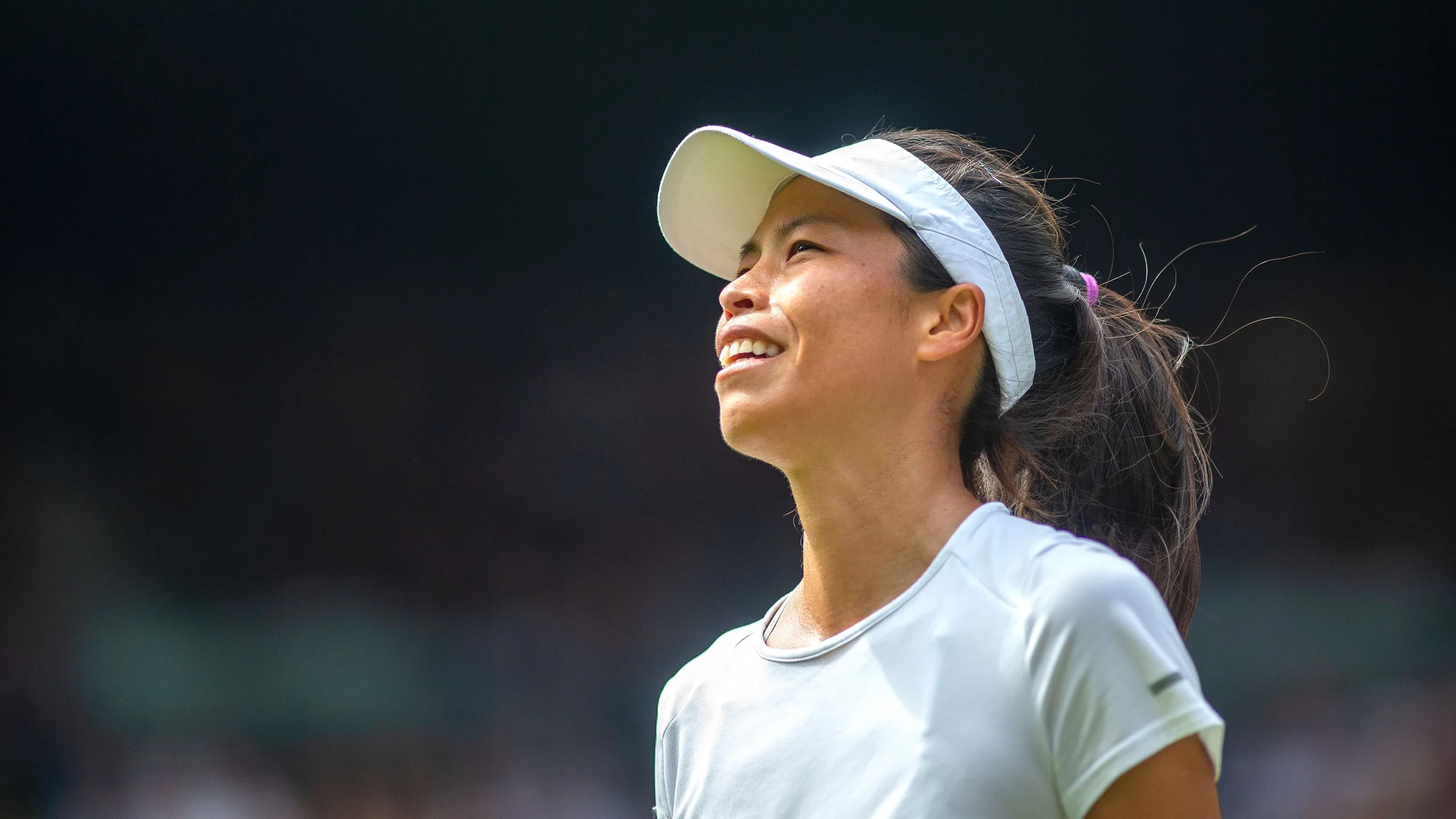
Hsieh Su-wei celebrates her 40th birthday with a resume few peers can match. A concise selection of career milestones captures the arc of a player who has excelled in doubles, enjoyed late-career singles highlights and returned to the tour with sustained success.
She first reached No. 1 in doubles on May 12, 2014, becoming the first Taiwanese player to reach the top spot in tennis in either women’s or men’s, singles or doubles. She claimed two Grand Slam mixed doubles titles at the Australian Open and Wimbledon in 2024 alongside Jan Zielinski; those were their first and third tournaments together. Her three WTA singles titles came in 2012 (Kuala Lumpur and Guangzhou) and 2018 (Hiroshima).
Hsieh has won Grand Slam women’s doubles titles with four different partners: two with Peng Shuai, and one each with Barbora Strycova, Elise Mertens and Wang Xinyu. She has five Wimbledon titles, including four in women’s doubles (2013 with Peng, 2019 with Strycova, 2021 with Mertens and 2023 with Strycova) and one mixed in 2024 with Zielinski.
Her WTA Finals record features six appearances and a title in 2013 with Peng; she reached the semifinals in 2025 with Jelena Ostapenko. Across Grand Slams she owns seven women’s doubles majors, plus two mixed doubles majors. Indian Wells stands out among her 13 WTA 1000 doubles titles, winning it four times in 2014 (with Peng), 2018 (with Strycova), 2021 and 2014 (with Mertens).
Other highlights: she has 36 doubles wins in 2025 (36-18), 37 career tour-level doubles titles (35 women’s, two mixed), and 40 career tour-level titles overall (three singles, 35 women’s doubles and two mixed). She spent 59 weeks at No. 1 in doubles and is one of only 18 women to log 50 or more weeks at the top. Her Top 10 and Top 15 singles victories mostly arrived in her 30s, including her first Top 10 singles win at Roland Garros in 2017 and a landmark win over reigning No. 1 Simona Halep at Wimbledon in 2018.
Early markers include a perfect 30-0 start below tour level at 15 in 2001 and her first Grand Slam doubles title at Wimbledon in 2013. She retired from singles in 2024 after Miami. Hsieh is the top seed in doubles in Brisbane this week alongside Jelena Ostapenko.
-
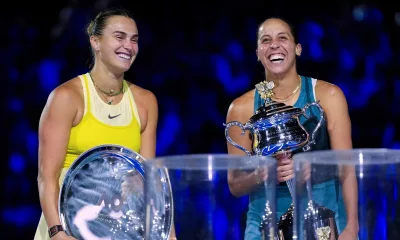
 ATPAustralian OpenGrand Slam2 months ago
ATPAustralian OpenGrand Slam2 months agoAustralian Open announces record A$111.5 million prize pool for 2026
-
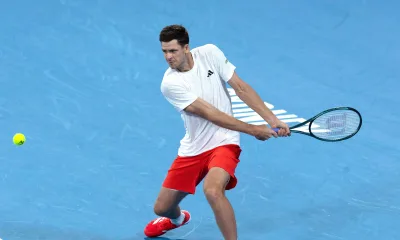
 ATPUnited CupWTA2 months ago
ATPUnited CupWTA2 months agoHurkacz edges Zverev in straight sets in United Cup return
-
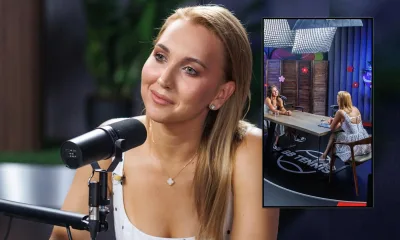
 ATPPlayer NewsWTA2 months ago
ATPPlayer NewsWTA2 months agoVesnina rejects claim that podcast aired unapproved Kudermetova anecdote about Rune


